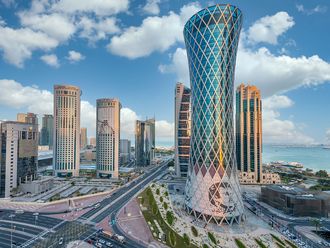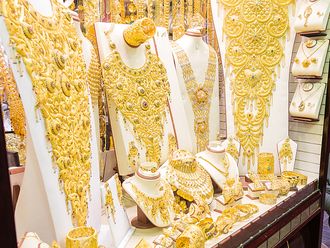The UAE economy continued to grow, having managed to maintain its strong and dynamic activities over the past four years, because it enjoys several advantages that make it one of the strongest economies in the world.
Among these are the stable political system, strong infrastructure, huge oil revenues, sophisticated banking system and strong economic relations with friendly countries in view of the nation's sound and balanced policies, as well as the principle of sustainable development adopted by the wise leadership.
Needless to say, the country's political leadership is always keen to speed up the development process to keep pace with the latest trends through flexibility and efficiency.
Therefore, the UAE's economy continued to grow despite the global economic slowdown.
Economic indicators
The economy grew by 7.4 per cent in 2008, up from 6.2 per cent in 2007. The economy achieved 1.3 per cent growth in 2009 despite the global economic slowdown, ensuring its strength and resilience in the face of crises.
Gross Domestic Product increased rapidly during the period from 2006 to 2009. It grew by 27 per cent in 2006, 17.8 per cent in 2007 and 23.2 per cent in 2008.
Although GDP declined by 2.1 per cent in 2009 compared to 2008, this paled in comparison with the slowdown in global economies.
Inflation declined drastically to 2.5 per cent last year, compared to 9.3 per cent in 2006, 11.1 per cent in 2007 and 12.3 per cent in 2008.
Federal budget
The good economic performance was not only reflected in the economic performance indices and the nation's rank among the top countries in the region and the world, but also by continuous growth in the federal budget over the past four years.
Economic growth and a corresponding increase in federal investment revenues and government financial resources has led to an increase in the contributions of the country's seven emirates to the federal budget, and accordingly to a rise in the budget.
Non-oil sectors
As a valuable natural resource, oil is of great strategic importance. The UAE holds the fourth-largest crude oil reserves in the Arab world, estimated at 98 billion barrels. Nevertheless, the UAE leadership has adopted sound economic policies to diversify its sources of income and reduce reliance on oil.
The non-oil sectors include agriculture, industry, building and construction, and water and electricity, in addition to service sectors such as trade, restaurants, hotels, financial institutions, social and personal services and banking and government services.
Fixed investments
From 2006-2009, the government opened doors for the local and foreign private sectors to contribute effectively to the production process. It also opened up the job market to create new opportunities for young, fresh graduates.
The government was able to provide an appropriate work environment in terms of infrastructure, incentives and facilities related to capital flow, as well as legislation. This resulted in investments increasing from Dh121 billion in 2006 to Dh318 billion in 2009.
Also, the contribution of investments to GDP climbed from 18.8 per cent in 2006 to 32.7 per cent in 2007, 32.1 per cent in 2008 and 34.8 per cent in 2009.
Tourism
The tourism sector is considered one of the most important and active in the UAE. The number of tourists was estimated to increase to 9.3 million in 2009, from seven million in 2008.
Banking
Despite the repercussions of the global financial crisis, by pumping Dh120 billion into the banking sector the government created sufficient liquidity for banks to continue to give loans, thereby speeding up economic recovery.
- 1.3% Growth rate achieved by the UAE economy in 2009, despite the repercussions of the global economic slowdown











